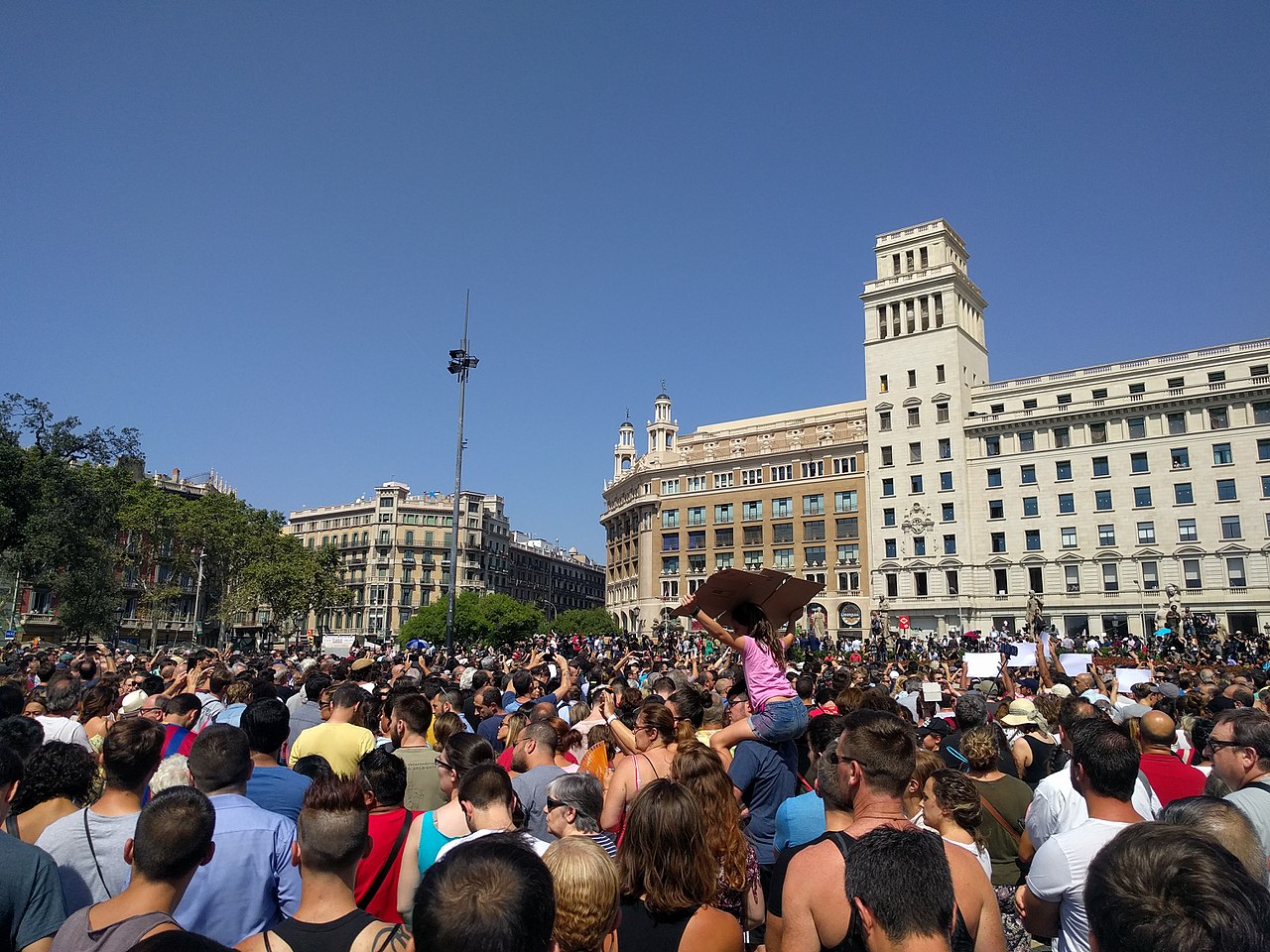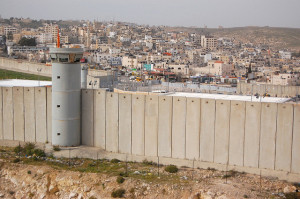by Emile Nakhleh
The recent terror attack in Barcelona is yet another bloody reminder that the Islamic State (ISIS or IS) has put Europe in its crosshairs. Although this was the bloodiest attack in Spain since 2004, since then several European cities—including London, Paris, Brussels, Nice, and Berlin—have witnessed terrorist-caused carnage and mayhem. Can these directed, inspired, or self-initiated attacks be thwarted? What can Europe really do to prevent such attacks? Let’s explore a few ideas that will be part of the battle against terrorism and extremism.
Transnational Intelligence Sharing
Terrorism is now a transnational reality. Transnational intelligence collaboration, therefore, must also become a reality, in word and in deed. The first fundamental point is that the United States is directly affected by what happens in Europe. This means that intelligence sharing between the United States and Europe must become a top priority if counter-terrorism is to be addressed seriously. Washington and other key American cities like New York must put all available counter-terrorism resources at the disposal of European cities and countries targeted by terrorist organizations. Intelligence sharing within the European Union and among European countries must also become more robust.
In recent years, especially since 9/11, American-European bilateral intelligence collaboration generally has worked well, but it has varied from one country to the next. Depending on the depth of the overall relationship between the United States and its allies, partnering intelligence services would pool their professional and tradecraft expertise on countries, regions, and groups. Trust among intelligence services is critical for successful partnering.
During my career at the Central Intelligence Agency, I noticed that the highest level of collaboration occurred between Washington and its Commonwealth partners—the United Kingdom, Australia, Canada, and New Zealand. That was followed by Western European countries—including France, Germany, Spain, and Italy—and north European and Scandinavian countries. Non-Western, Arab, Muslim, African, and Asian countries rounded out the list. The depth of the intelligence exchange on a bilateral basis often was determined by the significance of the issue and by whether it involved an immediate, current, and critical or actionable terrorist dimension.
Intelligence sharing within European countries has been fraught with domestic political considerations, privacy issues, stove piping, and turf jealousies. In recent years, some European countries have balked at comprehensive sharing of intelligence sources and methods with their neighbors because of some countries’ support of or opposition to American counter-terrorism policies and practices, including “enhanced interrogation techniques,” torture, rendition, and the use of so-called black sites.
Now that terrorism has hit almost every European country, national political and security leaders should develop a strategy for immediate and comprehensive collaboration that includes travel data, watch lists, and agents of radicalization—meaning persons, social media outlets, visa information about young people traveling to Iraq, Syria, Turkey, Afghanistan, Yemen, Libya, Pakistan, and other countries on the travel watch list.
Domestic Policies Toward Muslim Communities
According to Spanish security services, the Barcelona attack was not the work of a so-called “lone wolf.” An operational cell in Spain, perhaps with connections to other countries including France and Morocco, was behind the car attack. If this is an accurate assessment, such a cell could not have functioned under the radar of the security services in Spain or any other European country without the support of some members of the Muslim community—immigrants, descendants of immigrants, or converts to Islam. The assistance these supporters provide potential terrorists is usually driven by a radical, religious, anti-Western ideology, kinship or geographic relations, shared experiences in the adopted country or the country of origin, training in terrorist camps, or detention in Arab, Muslim, or European prisons or at Guantanamo and elsewhere.
In many cases, the radical ideology of potential terrorists is honed by the perceived mistreatment of Muslim communities in European countries and by their belief that European countries have engaged with the Americans in an on-going “war against Islam.” It’s also driven by rising Islamophobia in Western societies and ignorance of Islam as a religion, a culture, a complex series of historical narratives, and a moral compass of its adherents. Ignorance of this complexity makes it easier for non-Muslims to blur the differences between law-abiding Muslims and terrorists in the name of Islam, thereby branding all Muslims as terrorists and violent people.
Osama Bin Ladin’s al-Qaeda and Abu Bakr al-Baghdadi’s Caliphate have preached a virulent anti-Western ideology based on the belief that the West is waging a deadly battle against Islam as a religion and is bent on destroying the Islamic world territorially. Al-Qaeda and IS believe that suffering caused by this “aggression” anywhere in the Muslim world is the same everywhere Muslims live. Bin Ladin always viewed anti-Western Muslim grievances across the Muslim world, from Chechnya to Palestine and from Morocco to Bangladesh, as one and the same. Terrorist organizations have also accused European countries of siding with Arab and Muslim dictators in the perceived “war on Islam.”
European countries have generally taken a two-pronged approach toward their Muslim communities: target and neutralize radicals, would be terrorists, and their radicalizing agents; and engage Muslim communities through policies intended to help at-risk individuals become functioning citizens of their countries. Neither prong has worked well. Targeting radicals and terrorists would benefit immensely from closer intelligence sharing and security collaboration in human and technical collection, analysis, and sources and methods.
European countries’ engagement of their Muslim communities has been severely wanting. Official messaging has addressed conditions like high Muslim youth unemployment, under-employment, poverty, and alienation that are prevalent in many areas where Muslims live in the bigger cities of England, France, and other countries. But European governments must make major financial investments in their Muslim communities to spread technical education, create jobs, and push entrepreneurial initiatives and startups. At the same time, these governments should institute national educational programs that would enlighten non-Muslims about Islam, which could halt the rise of Islamophobia in Western countries.
Governments should partner with major high tech corporations to establish vocational, two-year technology and vocational institutes (TVI) in urban areas where large Muslim communities reside for training youth, ages 18-30, in vocational careers, ranging from computers to nursing to hospitality to building trades and more. These “job corps” TVIs, akin to the American concept of community college, would train interested youth in careers that are always in demand.
European governments and corporations should set aside sizable budgets to fund innovation and creative start-ups in Muslim neighborhoods, which would create meaningful jobs connected to the high-tech economy. High school and college-age youth in Muslim communities should be strongly encouraged to submit start-up proposals to local panels of experts that would judge these proposals. A winning submission would be given a sum of up to $10,000 to develop and market the start-up. Such start-ups usually begin to generate jobs within the first five years of operation. Other countries, including the Muslim country of Jordan, for example, have established similar funds for start-up competitions.
Innovative entrepreneurial start-up initiatives and commensurate job creation, together with useful technical education, could be the engine for job creation in Muslim “ghettoes” and crowded Muslim neighborhoods across Western Europe. Meaningful employment in turn will beget dignity, self-fulfilling lives, and hopeful futures. A generation that enjoys a satisfying life of work, creatively and passionately, will have less idle time and less inclination to pursue the path of violence and destruction. Europe can turn the corner.
Photo: A crowd in Barcelona’s Plaça de Catalunya observes a moment of silence for the victims of last week’s terror attacks (Wikimedia Commons)






NOT “recruited >to< ISIS" – ISIS had no part in their decision making or whatever. Most, maybe all, heard the lies of others- nothing from ISIS itself.
Let there be no prejudices and bias in investigation of the crime. Though the media has the luxury to propagate its instant justice, people should make it their business to get the truth and the whole truth of the entire carnage and the serial nature of the carnage. It could be that our own secret agencies, on clearance from our political bosses, could be arranging all such carnage to divert public attention from their bosses and let them carry out their vested interest policies.
Interesting article.
Here is my take on the condition of the world we live in.
Problems do not appear on their own. There are roots to the problems we tend to create or that we intentionally, or non intentionally, ignore by turning a blind eye onto whoever attempts to create them. Of course, small problems are created by little people, such as in the past people used to live in homes with open doors, now everyone needs to have a home safety monitoring device. Big problems by big people who behind the scenes are pulling the strings to benefit the few at the expense of huge human lives losses.
We thought after the Cold War, everything will be nice and dandy. Not so, for those who were wreaking havoc during the Cold War by instigating little wars while exerting pressure on their lackeys whom they managed to place in the seats of power.
The New World Order, as declared by G. Bush Sr., turned out to be a failure of magnanimous proportions. Stirring trouble in the Middle East and declaring open war on certain regimes had to have deleterious consequences. The lack of foresight of those who instigated these mayhems, by disturbing the peace and destroying lives, with the expectations and promises of saving lives from rogue regimes that they have created in the first place, would result in these acts of so called terrorism, the same acts of terrorism exacted onto those same people who are practicing it now. Unfortunately, in all of this power play to accommodate the interests of a few, only the innocents fall while we continue to blame these problems on social issues such as the mistreatment of muslims, of unwelcome immigrants and of refugees influx in countries who can barely take care of their own people. Spain being the latest example, of course.
Going back to the crux of the matter of this article regarding the need for counter-terrorism measures in Western Europe in combination with the rest of the world, I agree with the proposal; it remains to be seen who is listening and how willing are the elected leaders to protect their own citizens, when in the first place they were the ones who managed to impose this unnecessary burden on them. This open border policy is a failure and regardless of how it is perceived by a few who managed to sell it to a clueless political establishment and its electorate, under the guise of a humanitarian approach to alleviate the misery in the third world, it is a bogus. No one likes to be uprooted from his own homeland unless he is forced to do so. Of course, we live in a dynamic society, but only if it is a controlled one and not subject to constant experimentations with unforeseen results. The trillions of dollars invested over the years in Africa benefited only a small group of tyrant experts who managed to produce the kind of situations we are witnessing in Nigeria and other poorer countries. The death rate from starvation still remains at about 25000 of mostly innocent children a day in that continent alone.
I am sure you and I will never have enough solutions to fix the problems of this world. But while you propose, I observe. To each his own. We are no fools, indeed.
Ce poate face Europa pentru a preveni atacurile teroriste, “What Europe Can Do to Prevent Terror Attacks”.
R?spunsul nu este simplu, mai ales atunci când nu define?ti clar p?r?ile aflate în conflict.
Ceea ce statele democratice occidentale numesc atacuri teroriste, pentru atacatori este o lupt? pentru atingerea anumitor idealuri, r?spuns la agresiune teritorial?, cultural? sau economic?, dorin?? de impunere pe fondul genetic din anumite teritorii vizate.
Este o situa?ie de r?zboi cu toate valen?ele tehnologice ?i strategice moderne. Privi?i la vârstele acestor terori?ti, to?i sunt foarte tineri.
Asta înseamn? c? este o “cultur?” paralel? cu valorile culturale din statele democratice care preg?te?te, motiveaz?, asigur? baza material? pentru lupt?torii “cauzei” sale.
Câ?tig?torii r?zboiului vor statua c? ei au avut dreptate, cauza lor a fost cea corect?.
Acum, cet??enii din toate statele democratice stau ca într-o închisoare, cu poli?ie ?i armat? pe str?zi pentru câ?iva terori?ti. Sti?i cât cost? aceast? desf??urare de for?e? Foarte mult, ?i se vede c? este ineficient?.
Cet??enii pl?titori de taxe ?i impozite nu se mai simt în siguran?? nici chiar în ?ara lor, unul din scopurile atinse de “terori?ti”.
Ce trebuie s? fac? Europa ?i nu numai :
1. In primul rând, LEGISLATIE;
2. To?i combatan?ii asimila?i terorismului vor fi judeca?i dup? Legea Islamic?, cu prevederile de acolo.
3. De?inerea ?i judecarea acestor combatan?i se va face în ??ri, teritorii corespondente originii lor . Niciun de?inut nu va mai fi re?inut în închisorile de pe teritoriile Statelor Democratice.
4. Averea ?i resursele care au fost implicate, vor fi confiscate;
5. Familiile celor implica?i în acte teroriste vor fi repatriate în ??rile de origine, f?r? posibilitatea de revenire. Vor fi luate în considerare ?i tentativele descoperite înainte de s?vâr?irea lor.
6. To?i deciden?ii care vând arme sau ofer? suport de orice natur? “terori?tilor” vor fi asimila?i lor, deporta?i pentru judecare în zonele protejate stabilite.
7. Copii în vârst? de sub 4 ani vor putea fi sco?i de sub educa?ia “terorist?” ?i interna?i în Centre sociale democratice f?r? a mai putea fi contacta?i de p?rin?i, apar?in?tori sau coreligionari. Vor avea o identitate nou?, bazat? pe valorile democratice. Ceilal?i copii î?i vor urma p?rin?ii în ??rile de origine.
Alt? cale nu exist?.